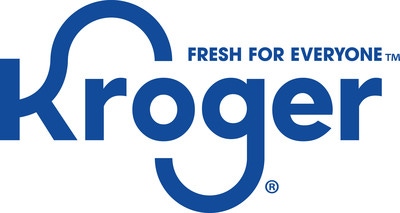Kroger updates animal welfare policy in ESG action plan
Goal to source 100% of fresh pork sold in retail stores from suppliers that house sows in group housing systems by 2025.
September 9, 2022

Kroger, America's largest grocery retailer, has outlined an updated Environmental, Social and Governance action plan to support the company's comprehensive ESG strategy and published its annual ESG report.
"We live our purpose – to feed the human spirit – through Kroger's commitments to advance positive impacts for people and our planet and create more resilient global systems," said Rodney McMullen, Kroger's chairman and CEO. "We are proud to report that Kroger continues to make progress toward key ESG goals. I am especially proud of the Kroger team's collective effort to create communities free from hunger and food waste. Through Zero Hunger | Zero Waste, Kroger has donated billions of meals to help end hunger and millions of pounds of surplus fresh food to avoid waste. We are committed to expanding food access, affordability, and choice for all our customers."
As the centerpiece of its ESG strategy, Kroger's signature Zero Hunger | Zero Waste social and environmental impact plan emphasizes the unique role Kroger plays across the food system and its many stakeholders as an employer, food processor, retailer, healthcare provider and more. This month, Kroger is marking the fifth year of this signature initiative. To date, the company has directed 2.3 billion meals to communities, including $1 billion in charitable support and 500 million pounds of surplus fresh food rescued from Kroger stores to help end hunger.
Kroger's 2022 ESG Report: Nurturing Shared Values and other resources can be found at the ESG Hub, ESG Strategy: Thriving Together.
ESG action plan updates
In addition to Zero Hunger | Zero Waste, Kroger continues to make progress toward key goals and strengthen commitments in several areas, most notably in climate impact, packaging, human capital management, human rights and animal welfare.
"With this updated action plan, we are seeking to address a wide range of complex social and environmental challenges, and setting ambitious impact targets," said Keith Dailey, Kroger's group vice president of corporate affairs and chief sustainability officer. "These commitments express Kroger's aspiration to make affordable fresh food even more accessible while advancing positive impacts for our communities and the planet. Our progress and commitments reflect our efforts to operationalize and integrate ESG performance into lines of business and develop a shared-value framework that creates positive outcomes for all stakeholders."
Animal welfare
Kroger updated its animal welfare policy and shared a detailed animal welfare update to outline progress to date and roadmaps for future milestones.
The company published specific milestones to achieve its goal to source 100% of fresh pork sold in retail stores from suppliers that house sows in group housing systems by 2025. Kroger also outlined plans to invest $45 million in additional pricing, promotions and agreements to support the transition to a cage-free or higher-welfare egg supply, with specific milestones to reach 70% cage-free by 2030.
Following an announcement earlier this year, Kroger has partnered with Kipster Farms, the innovative egg production system founded in The Netherlands, to bring the world's first carbon-neutral, cage-free shell eggs to customers in the U.S. in 2023.
Climate impact
Kroger formally committed to set a more aggressive greenhouse gas reduction target aligned with the requirements of the Science Based Targets initiative. The company's current 2030 goal is aligned with a well-below 2°C climate scenario; however, given the urgency for greater climate action, the goal will be strengthened to support a 1.5°C climate scenario. Kroger will also set a new Scope 3 goal for supply chain emissions reduction as part of its SBTi commitment.
The company will share a detailed project roadmap for achieving the current GHG reduction goal by the end of the 2022 fiscal year.
Packaging
Kroger completed an initial packaging baseline assessment to establish a plan to achieve its 2030 sustainable packaging goals, which include 100% recyclable, reusable and/or compostable Our Brands packaging by 2030. The baseline focused on grocery and fresh food products, as well as health, beauty, household supplies and cleaning items. Baseline findings show that 40% of in-scope Our Brands product packaging meets the company's definition of recyclable today when measured by weight.
Human capital management
Kroger's family of companies continues to offer accessible employment and economic advancement opportunities for more than 400,000 people across the U.S. Kroger has invested an incremental $1.2B in associate compensation and benefits since 2018, raising the average hourly rate to over $17/hour, and over $21/hour when comprehensive benefits like health care and pensions are included.
Human rights
Kroger recently updated its Human Rights Policy to align with the United Nations Guiding Principles on Business and Human Rights. The company is in the process of developing a comprehensive human rights due diligence framework and implementation roadmap aligned with the UNGPs. This work will continue through 2022. The company also recently launched its first human rights impact assessment.
Source: Kroger, which is solely responsible for the information provided, and wholly owns the information. Informa Business Media and all its subsidiaries are not responsible for any of the content contained in this information asset.
You May Also Like



